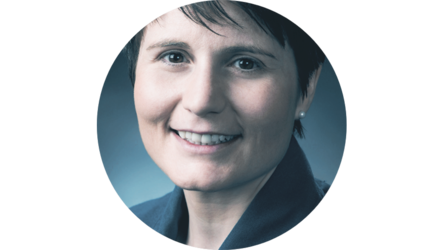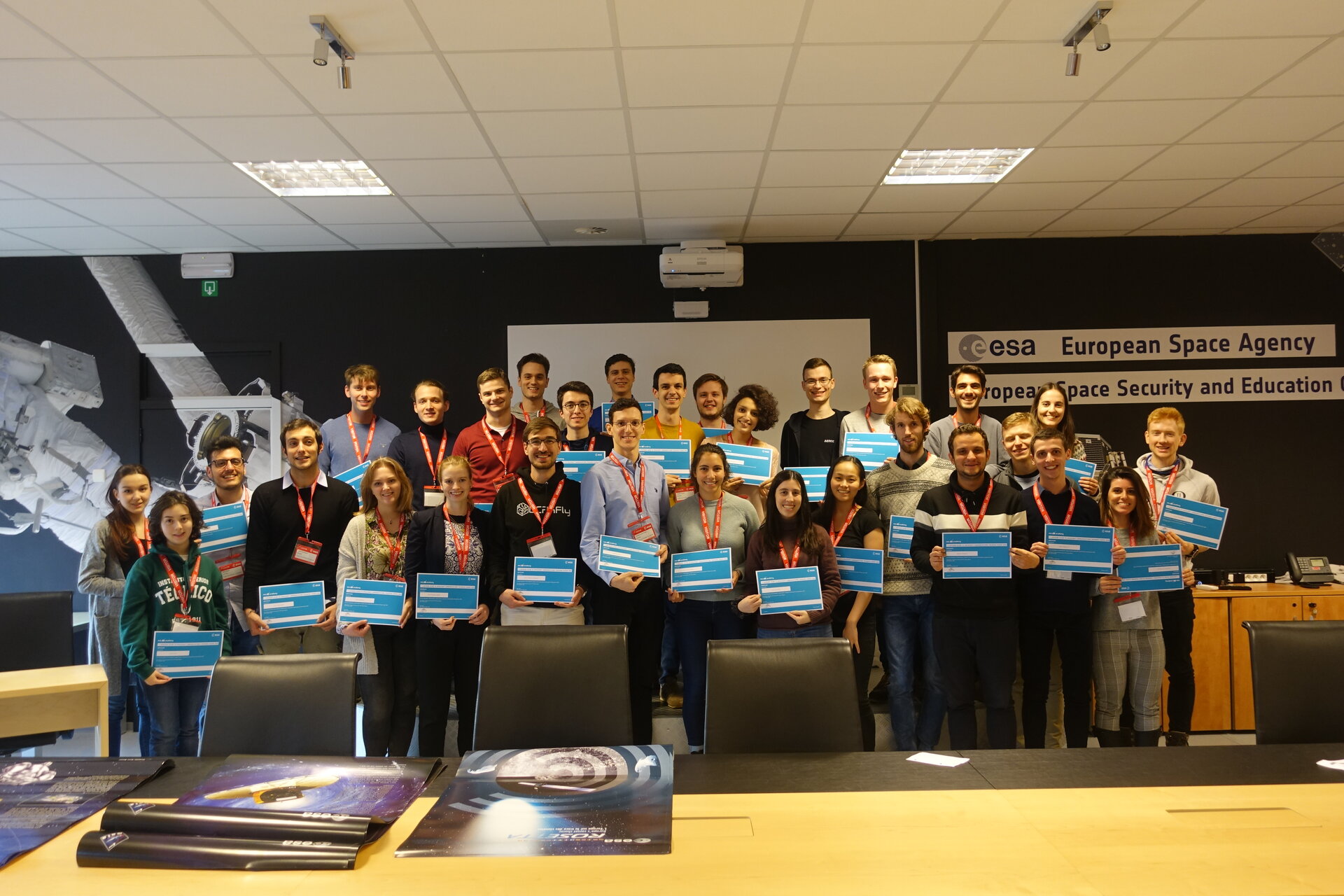Calling university students for the restyled Ladybird Guide to Spacecraft Communications Training Course
In brief
ESA’s Education Office is looking for 30 university engineering students who would like to be introduced to the fascinating world of spacecraft communications. The Ladybird Guide to Spacecraft Communications Training Course 2023 will run again between 13 and 17 March 2023 at the ESA Education Training Centre in ESA’s ESEC-Galaxia, Belgium, and the European Space Operations Centre (ESOC) in Germany.
In-depth
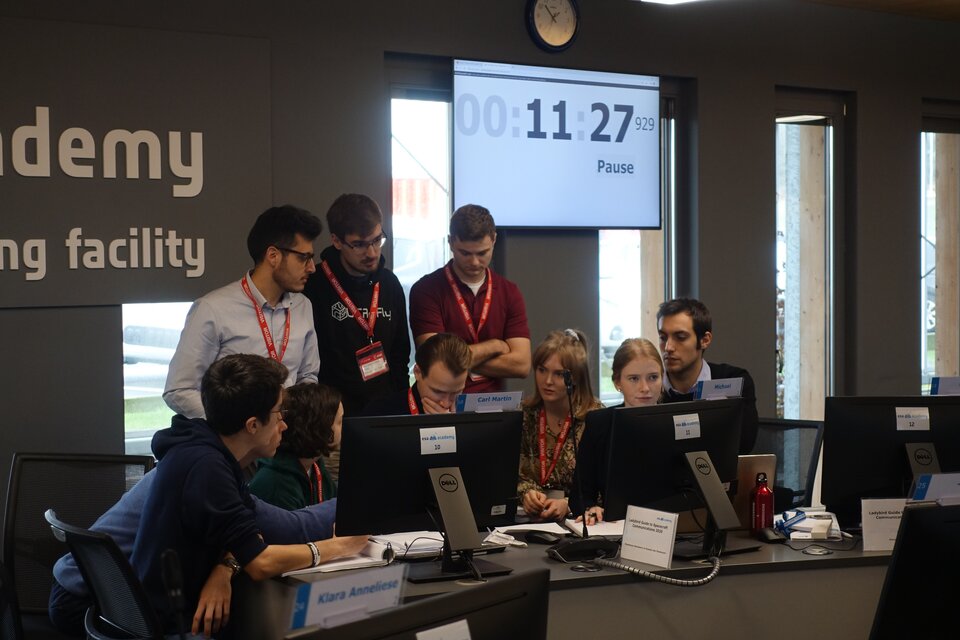
It is easy to take spacecraft communications for granted. Yet the art and science of sending commands to a satellite and receiving data back is of paramount importance. Without highly skilled communications engineers, there would be no space missions.
This training course will consist of formal lectures with lots of interaction with the students and will be provided by an ESA Engineer of the Mission Operations Department of ESOC. He will relay real stories of operations engineers battling wayward spacecraft – sometimes winning and sometimes losing. The way communications systems are designed can have a crucial impact on how they are used and on what problems can occur!
The students will also learn about ESA’s European space Security and Education Centre (ESEC) and the on-site activities in Redu, including Galileo and PROBA spacecraft operations.
During the week, students will experience live operations “close up” thanks to ESA’s OPS-SAT spacecraft and they will also take part in a group exercise. After designing a communications system for a specific mission, they will be asked to see how it holds up when the mission experiences an anomaly taken from real life. They will be presented with the information available to an operations team at the time the problem occurs and will have to ask themselves "what went wrong?", and more importantly "what can we do now?”.
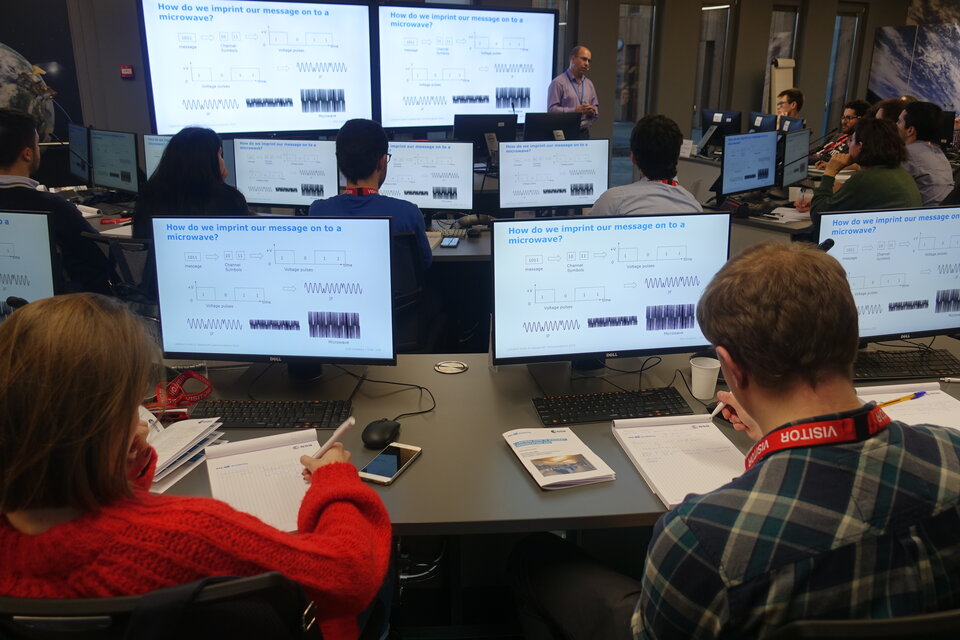
On the final day, the students will travel to the European Space Operations Centre (ESOC), Germany and have the chance to meet various operations engineers. The group exercise will end with the various teams trying to rescue their spacecraft in the setting of ESOC’s famous Main Control Room.
By the end of the training course, the students will have a solid understanding of the challenges of communicating with a spacecraft and the subsystems involved in communications (both on-board and on the ground): what can go wrong, troubleshooting, and traps to be avoided during operations and testing.
Preliminary schedule
| Day 1 |
Introduction The Challenge Modulation |
| Day 2 |
Demodulation Coding Decoding |
| Day 3 |
Protocols Transmission & Reception Link budgets |
| Day 4 |
Real Ground Stations Introduction to the Galileo Programme Visit of ESEC-Redu Wrap-up |
| Day 5 |
Visit of ESOC Final group exercise Conclusion |
Who can apply?
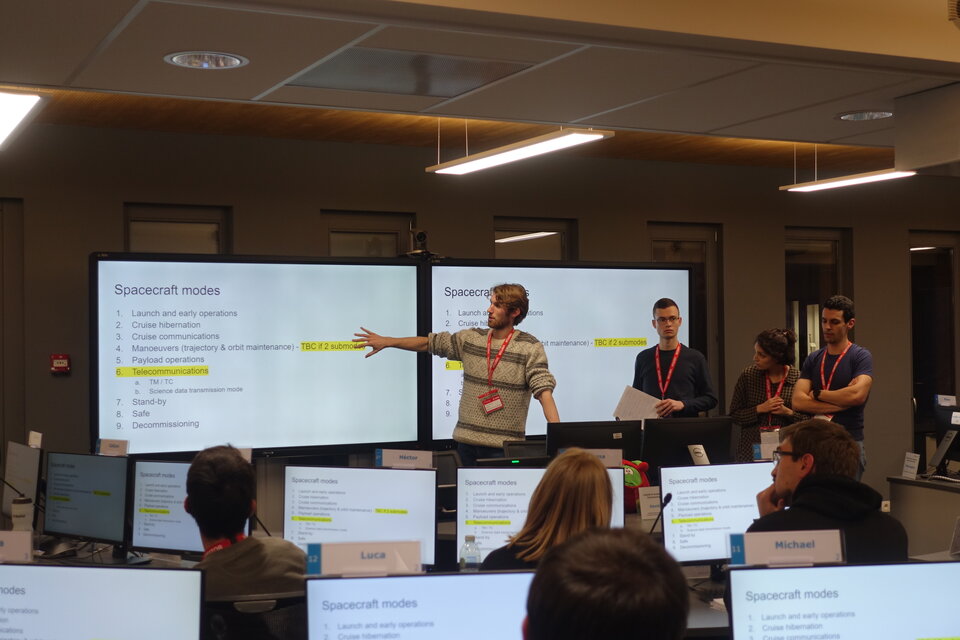
Students enrolled in university who fulfil the following criteria:
- aged minimum 18 years old. ESA Academy and relevant partners will only appraise applications from students who have no or limited professional experience in relevant engineering or space-related topics;
- be a citizen of an ESA Member State, Canada, Latvia, Lithuania, Malta, Slovakia or Slovenia;
- be enrolled as a Bachelor, Master, or PhD student in a university for the year 2022-2023 (not graduating before the training course);
- be studying an engineering subject.
Upon completion of the training course, students will be evaluated on the group exercise and will receive a certificate of participation and a course transcript, allowing them to request ECTS credit(s) from their respective universities.
The selected students will be sponsored by ESA to cover accommodation and meals, as well as up to 300 Euros for travelling to and from Belgium.
How to apply
- Fill in the application form;
- Upload a motivation letter (PDF, maximum 1 page, no images);
- Upload a CV (PDF, in Europass format, maximum 2 pages, no images);
- Upload a formal recommendation letter (PDF, maximum 1 page, including signature, no images) from a university professor or academic supervisor of current university (if it is not possible to receive the recommendation letter from your referee, please ask them to send a recommendation email to tlp@esa.int before the application deadline);
- Upload a copy of academic records (PDF);
All answers and documents should be in English (except academic records if not available).
Students wishing to apply for the training course must submit their applications by 18 January 2023 23:59 CEST.
For more information, please contact tlp@esa.int















 Germany
Germany
 Austria
Austria
 Belgium
Belgium
 Denmark
Denmark
 Spain
Spain
 Estonia
Estonia
 Finland
Finland
 France
France
 Greece
Greece
 Hungary
Hungary
 Ireland
Ireland
 Italy
Italy
 Luxembourg
Luxembourg
 Norway
Norway
 The Netherlands
The Netherlands
 Poland
Poland
 Portugal
Portugal
 Czechia
Czechia
 Romania
Romania
 United Kingdom
United Kingdom
 Slovenia
Slovenia
 Sweden
Sweden
 Switzerland
Switzerland



